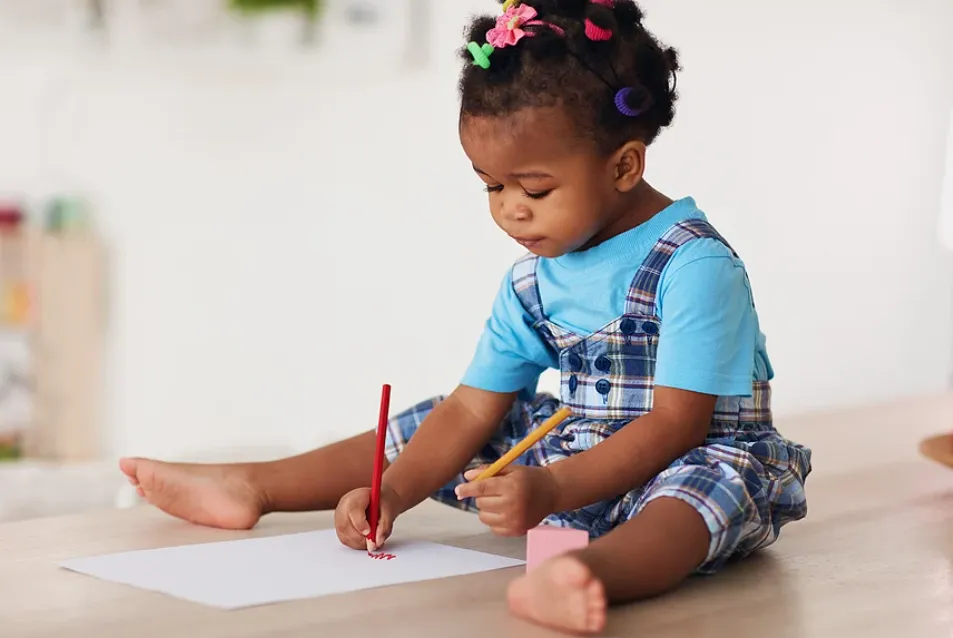The early years of a child’s life are often described as the “golden window” for development. These formative years are filled with curiosity, discovery, and rapid learning. Research continually shows that a nurturing environment and opportunities for exploration during this time can have lasting benefits on a child’s cognitive, social, and emotional skills.
Whether your child is at home or attending a preschool in Bountiful, these early experiences help lay the foundation for their future learning and development.
This blog will explore five essential skills your child will develop in their early years, helping you to better understand the milestones they’ll achieve and how you can support them on this exciting journey.
1. Social and Emotional Skills
Learning how to communicate with others and manage emotions are some of the most important skills young children develop. These skills allow kids to build friendships, express their needs, and develop empathy.
What it Looks Like
- Taking turns during a game.
- Learning to share toys with classmates or siblings.
- Identifying and expressing emotions, like saying “I’m happy” or “I’m upset.”
How You Can Help
- Encourage group playdates where your child gets to interact with peers.
- Talk openly about feelings and emotions, and use books to model social behavior.
- Praise your child when they show kindness or practice patience.
Strong social and emotional skills create the foundation for positive relationships and emotional resilience throughout life.
2. Language and Communication
Early years are when children experience an explosion of language development. From babbling as a baby to forming full sentences, your child is learning to communicate their ideas and understand others better.
What it Looks Like
- Expanding vocabulary, such as identifying colors or animals.
- Following simple directions like “put your toys away.”
- Engaging in pretend play with dialogue (e.g., “I’m a doctor, and you’re my patient!”).
How You Can Help
- Read with your child daily, discussing pictures and asking questions.
- Play games like “I Spy” to encourage descriptive language.
- Sing songs and rhymes to reinforce phonics and word patterns.
By fostering your child’s communication abilities early, you’re equipping them with the tools to thrive in future academics and relationships.
3. Cognitive and Problem-Solving Skills
Children are natural problem-solvers. Whether they’re figuring out how to stack blocks without them falling or recognizing patterns in a sequence, their cognitive development is essentially their brain flexing its muscles.
What it Looks Like
- Sorting items by size, shape, or color.
- Solving puzzles and experimenting with building toys.
- Asking endless “why” and “how” questions.
How You Can Help
- Give your child age-appropriate puzzles and logic games.
- Encourage curiosity by answering their questions and exploring topics together.
- Offer opportunities for trial and error, even if it means messy playtime with sand, water, or paints.
A strong foundation in cognitive skills paves the way for increased confidence in learning complex subjects like math and science in the future.
4. Fine and Gross Motor Skills
Developing physical coordination is equally as critical in the early years. While gross motor skills involve large muscle movements like running, fine motor skills focus on precise hand-eye coordination tasks.
What it Looks Like
- Scribbling with crayons or using scissors.
- Running, hopping, or catching a ball.
- Stacking blocks or stringing beads.
How You Can Help
- Create spaces for active play, like tumbling on a soft mat or climbing a small jungle gym.
- Use arts and crafts activities to practice fine motor control.
- Play games that involve coordination, like tossing and catching a beanbag.
Motor skills don’t just contribute to your child’s physical development; they also enhance their ability to explore their environment and perform tasks independently.
5. Creativity and Imagination
One of the most magical parts of early childhood is watching your child’s imagination take flight. Through creative activities, children learn to express themselves, think outside the box, and explore new ideas.
What it Looks Like
- Acting out scenes from their favorite stories.
- Drawing pictures to represent their thoughts.
- Inventing games or building unique structures with blocks.
How You Can Help
- Provide open-ended toys, like LEGO, art supplies, or dress-up costumes.
- Ask questions about their creations (e.g., “Tell me about the house you built!”).
- Allow unstructured playtime to explore new ideas and scenarios.
Fostering creativity not only helps in artistic endeavors but also cultivates innovative thinking that will benefit your child throughout their life.
How You Can Support Your Child’s Early Development
Creating an environment where your child can thrive doesn’t require fancy tools or expensive programs. Simple, consistent actions like reading together, having meaningful conversations, and spending quality time playing are what nurture your child’s growth.
Enrolling your little one in a high-quality early learning program, like a preschool in Bountiful, offers added structure and resources for their overall development. Professional educators are trained to guide children through social, cognitive, and creative milestones while encouraging joy in learning.
By understanding the essential skills your child will develop in their early years, you’re setting the stage for a lifetime of success and fulfillment. Every milestone is a celebration of their progress and potential.



